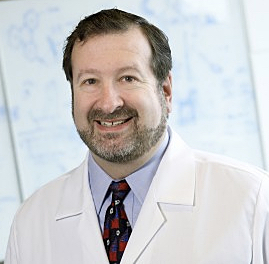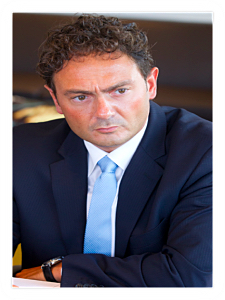Zug, Switzerland, based SELLAS Life Sciences Group, (SELLAS), a 2012 startup clinical-stage biopharmaceutical company focused on development of novel cancer therapies, reports that positive data from the company’s clinical studies of its WT1 cancer vaccine licensed from Memorial Sloan Kettering Cancer Center. The WT1 vaccine is a late clinical-stage cancer immunotherapy agent targeting a broad spectrum of hematologic cancers and solid tumor indications, being developed to target acute myeloid leukemia (AML), mesothelioma, malignant pleural mesothelioma (MPM), multiple myeloma, ovarian cancer, and multiple other cancers. Results of Phase 1 and Phase 2 WT1 clinical trials were presented at the International WT1 Conference, held last month Kyoto, Japan. This program will advance into Phase 3 trials in 2016 in AML and MPM.
SELLAS says clinically meaningful prolonged survival was demonstrated in both patient groups, with a median overall survival of 52.5 months achieved in a Phase 2 trial of the WT1 vaccine in adult patients with AML. Results of in a previous Phase 1 AML study showed a median overall survival of more than five years with the WT1 vaccine. The company notes that when combined, results from the Phase 1 and Phase 2 studies demonstrate a two-year overall survival in adult AML patients of 79 percent, while historical two-year overall survival results in similar patient populations range from 30 percent to 45 percent.
Additionally, SELLAS says that a randomized, double-blind, placebo-controlled Phase 2 study in MPM patients at Memorial Sloan Kettering Cancer Center (MSK) in New York City and M.D. Anderson Cancer Center in Houston, Texas, showed a median overall survival of 21.4 months for WT1 vaccine-treated patients, versus 16.6 months overall survival for patients in a placebo control group at a recently updated review.
The company reports that the WT1 cancer vaccine also resulted in a median progression-free survival of 11.4 months, double that of the control group, 5.7 months, in patients with MPM, and in both the AML and MPM trials, SELLAS’s WT1 vaccine demonstrated a favorable safety and tolerability profile. These and other clinical data were reported at the International WT1 Conference in an oral presentation, entitled “Clinical Development of a Multivalent WT1 Peptide Vaccine for Leukemias and Solid Tumors,” delivered by David A. Scheinberg, M.D., Ph.D. , one of the inventors of the WT1 vaccine, and Chairman of the Molecular Pharmacology Program and of the Center for Experimental Therapeutics at Memorial Sloan Kettering.
 “The clinical results of the WT1 vaccine in these two patient populations provide further proof of concept for this promising approach to cancer treatment,” says Dr. Scheinberg in a release. “The survival benefit in AML has been much longer than expected with standard therapy, and we now have seen that the overall survival results from the first study in patients with AML have been confirmed in 22 additional patients in the Phase 2 trial. Furthermore, the WT1 vaccine improved overall survival and progression-free survival in a randomized trial in the MPM population, where there continues to be a significant need for new approaches to this highly debilitating and often fatal disease. We look forward to the progress of the vaccine as it advances into Phase 3 testing for both diseases.”
“The clinical results of the WT1 vaccine in these two patient populations provide further proof of concept for this promising approach to cancer treatment,” says Dr. Scheinberg in a release. “The survival benefit in AML has been much longer than expected with standard therapy, and we now have seen that the overall survival results from the first study in patients with AML have been confirmed in 22 additional patients in the Phase 2 trial. Furthermore, the WT1 vaccine improved overall survival and progression-free survival in a randomized trial in the MPM population, where there continues to be a significant need for new approaches to this highly debilitating and often fatal disease. We look forward to the progress of the vaccine as it advances into Phase 3 testing for both diseases.”
Dr. Scheinberg specializes in care of patients with leukemia and is also investigating new therapeutic approaches to cancer, both in the clinic and in the laboratory — his research focused on discovery and development of novel, specific immunotherapeutic agents. These include monoclonal antibodies that target the cell surface of cancers, targeted radiopharmaceuticals that deliver radioactive particles including alpha particles or alpha particle nanogenerators, targeted nanodevices that selectively kill cancer cells, and therapeutic vaccines that target the oncogene products that cause the cancers.
Eight different therapeutic agents developed by Dr. Scheinberg in his laboratory have reached human clinical trials, including the first humanized antibodies to treat acute leukemia, the first targeted alpha particle therapies, and alpha generators, and the first tumor-specific fusion oncogene product vaccines. The David Scheinberg Lab at MSK is also investigating cellular resistance mechanisms to these agents.
“The overall goals of this laboratory are to develop novel targeted immunotherapies based on effectors of the immune system and to understand their mechanisms of action as well as the mechanisms of resistance to them,” says Dr. Scheinberg in a statement. “This includes antibodies, targeted nano-devices, and active specific agents such vaccines. An important goal is to take these new therapies into human clinical trials for testing. We developed a molecular nanogenerator that releases alpha particles inside cancer cells, now being tested in humans… and a WT1 vaccine, also in national trials.”
Dr. Scheinberg, who currently holds the Vincent Astor Chair at Memorial Sloan Kettering, and is Chair of the Molecular Pharmacology Program in the Sloan Kettering Institute, has published more than 250 papers, chapters, and books in these fields. He is also a professor of medicine and pharmacology, and co-chair of the pharmacology graduate program at Weill-Cornell Medical College and a professor at the Gerstner Sloan Kettering Graduate School.
SELLAS intends to initiate a pivotal Phase 3 trial of its WT1 vaccine in AML early next year, followed by a pivotal Phase 3 in MPM patients. Both trials will be double-blind, placebo-controlled, multi-center and multinational studies, designed to assess efficacy and safety of the vaccine in the respective patient populations.
 “As the WT1 program further accelerates, we continue to be very excited with the results and the additional validation achieved through our work with our key collaborators at MSK,” says Angelos M. Stergiou, M.D., Chairman and Chief Executive Officer of SELLAS. “In addition to the survival results, Dr. Scheinberg presented important data at the WT1 Conference showing that positive immune responses correlated with better overall survival and progression-free survival.”
“As the WT1 program further accelerates, we continue to be very excited with the results and the additional validation achieved through our work with our key collaborators at MSK,” says Angelos M. Stergiou, M.D., Chairman and Chief Executive Officer of SELLAS. “In addition to the survival results, Dr. Scheinberg presented important data at the WT1 Conference showing that positive immune responses correlated with better overall survival and progression-free survival.”
The Phase 2 Trial in Mesothelioma
The double-blind, randomized (1:1) Phase 2 study in Mesothelioma compared the WT-1 analog peptides vaccine in combination with Montanide-adjuvant + Granulocyte-macrophage colony-stimulating factor (GM-CSF), versus Montanide-adjuvant + GM-CSF in patients with MPM who had previously completed combined modality therapy. Thirty-nine patients were to be enrolled in each arm at MSK and M.D. Anderson Cancer Center. However, in May 2015, the trial’s independent Data Monitoring Committee requested discontinuation of the control group due to futility while leaving open the WT1 cancer vaccine arm. This change led to unblinding the study earlier than planned; total enrollment has reached 40 patients, with 19 patients in the WT1 cancer vaccine group and 21 in the control group.
The Phase 1 and 2 Trials in AML
These Phase 1 and Phase 2 trials studied the WT1 analog peptide vaccine in combination with Montanide-adjuvant + GM-CSF in patients with AML who were in first complete response and completed any planned post-remission therapy. Altogether, 31 patients were enrolled in the two studies at MSK.
The WT1 Vaccine
SELLAS describes the WT1 antigen as a transcription factor that is not generally expressed in normal adult cells, but appears in a large number of cancers, as well as in certain cancer stem cells, noting that WT1 has been ranked by the National Cancer Institute (NCI) as the Number 1 target for cancer immunotherapy, and that while WT1 has not been druggable by traditional approaches, it can be targeted by the immune system. Specifically, they say a number of different peptide sequences from the WT1 antigen have been identified as immunogenic and capable of stimulating cytotoxic T-cells that can target and kill WT1-expressing cancer cells. Studies also have shown that WT1 does not provoke tolerization and that patients’ T-cells can remain reactive to the antigen over time.
The WT1 vaccine, originally developed by MSK and licensed to SELLAS, comprises four modified peptide chains that induce a strong innate immune response (CD4+/CD8+ T-cells) against the WT1 antigen, and is administered in combination with an adjuvant and an immune modulator to improve the immune response to the target. Based on its mechanism and the accumulating evidence of activity in mid-stage trials, SELLAS says the WT1 vaccine may have potential to complement currently available therapies by destroying residual tumor cells of cancers in remission and providing ongoing immune surveillance for recurrent tumors. Overall, SELLAS projects that the WT1 vaccine could target more than 20 cancers that over-express WT1, many of which are associated with relapse rates of up to 80 percent or more, as seen in patients with AML and MPM.
The WT1 clinical trials program will advance into Phase 3 trials in 2016 in AML and MPM.
For more information, visit:
http://sellaslifesciences.com
Sources:
SELLAS Life Sciences Group
Memorial Sloan Kettering Cancer Center
The David Scheinberg Lab
M.D. Anderson Cancer Center
International WT1 Conference


